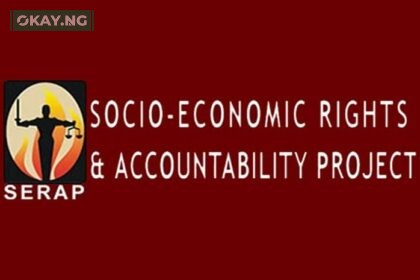The Petroleum Products Retail Outlets Owners Association of Nigeria (PETROAN) has firmly dismissed concerns of an impending fuel scarcity, directly addressing the swirling controversy surrounding the Naira-for-crude arrangement. This assurance comes at a critical juncture, as Nigerians grapple with economic uncertainties and potential disruptions to essential services.
“We wish to reassure the public that this is not a justification for panic buying,” stated Joseph Obele, PETROAN’s National Public Relations Officer, in a recent statement. This declaration is a direct counter to the burgeoning fears that the temporary suspension of Naira sales by Dangote Refinery, coupled with the ongoing review of the Naira-for-crude initiative, could trigger a nationwide fuel shortage.
Let’s be clear: the emotional undercurrent here is palpable. The mere suggestion of fuel scarcity can send ripples of anxiety through households and businesses alike, conjuring images of long queues and inflated prices. As a writer, I recognize this, and it’s why providing clear, authoritative information is paramount.
Obele emphasized the robust supply chain, highlighting the contributions of the Nigerian National Petroleum Company Limited (NNPC Ltd.), modular refineries, and independent importers. “The NNPC Ltd. has two functional refineries, and there are other modular refineries, as well as importers, that are also supplying petroleum products to the market,” he explained. This multi-pronged approach, he asserted, ensures continuous availability and mitigates the risk of any significant supply disruptions.
The Naira-for-crude initiative, a program designed to bolster the local currency and streamline crude oil transactions, has entered a critical review phase. As Obele clarified, “We understand that the ministry is still considering the feasibility and sustainability of the Naira-for-Crude initiative.” This acknowledgment underscores the government’s commitment to evaluating the program’s long-term viability, a process that naturally entails a period of uncertainty.
PETROAN’s stance reflects a broader recognition of the delicate balance between promoting local production and ensuring market stability. While advocating for increased domestic refining capacity to enhance energy security and stimulate economic growth, the association also acknowledges the necessity of maintaining open import channels.
“We believe that promoting local production will not only guarantee energy security but also create jobs and stimulate economic growth. However, the petroleum marketing body recognized that local production alone may not be sufficient to meet the country’s demand for petroleum products, and thus supports the position that the window for importation of petroleum products should remain open,” Obele stated.
This pragmatic approach, balancing national aspirations with market realities, is crucial for maintaining consumer confidence. “We urge Nigerians to remain calm and go about their normal activities, as there is no shortage of petroleum products,” Obele reiterated.
Looking ahead, it’s essential for policymakers to engage with all stakeholders, including retailers, to formulate sustainable energy policies. As PETROAN rightly pointed out, “We urge the government to take into account the interests of petroleum product retailers and other stakeholders before making final policy decisions.” This collaborative approach will be instrumental in navigating the complexities of the energy sector and ensuring a stable, accessible fuel supply for all Nigerians.
The economic implications are significant. A stable fuel supply is not just about convenience; it’s about maintaining the smooth operation of businesses, transportation, and daily life. Any disruption could have cascading effects on the wider economy, impacting inflation and overall economic stability. Therefore, the government’s ongoing review of the Naira-for-crude initiative must prioritize stability and sustainability, ultimately safeguarding the interests of the Nigerian people.













